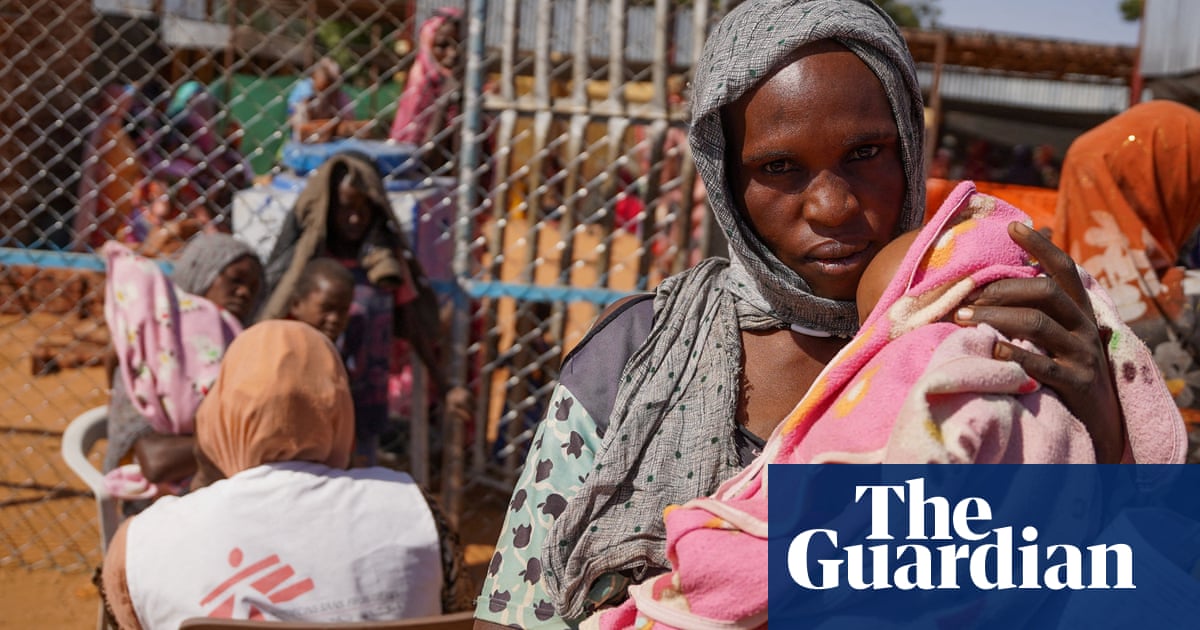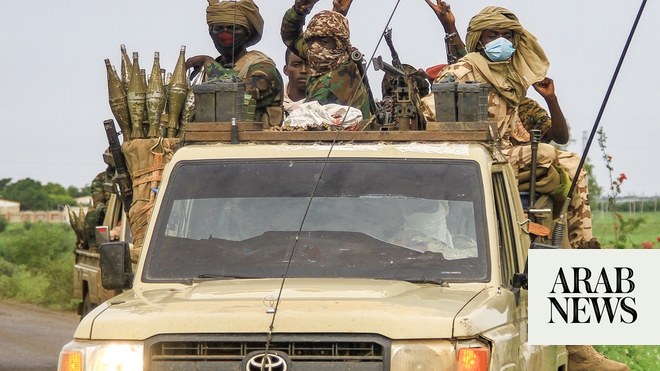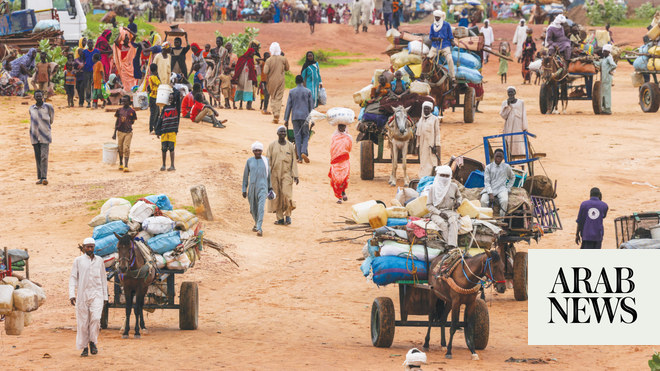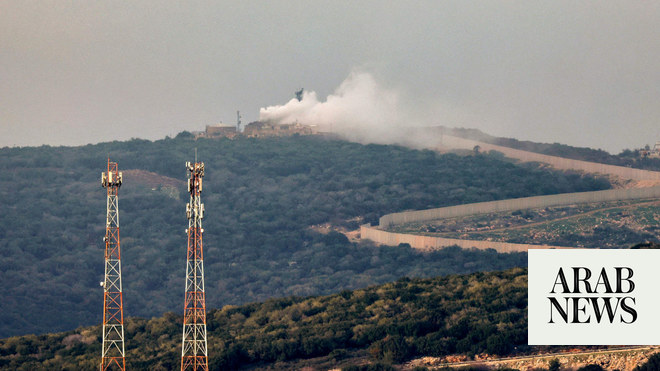
At the Abu Shouk camp for displaced people on the northern fringe of El Fasher in North Darfur, about seven people a day arrive with injuries sustained from nearby clashes between fighters from the paramilitary Rapid Support Forces and groups allied to the Sudanese army.
For months now the RSF have been besieging El Fasher, the capital of North Darfur state, trapping a million people in the last major population centre in Sudan’s vast Darfur region not under paramilitary control.
In the early months of the siege the city was protected by a fragile peace, but since April violence on its outskirts has soared after its two most powerful armed groups – which had helped to keep the peace – pledged to fight alongside the army.
Fighting is particularly intense near Abu Shouk, where the army-aligned groups are taking on RSF fighters stationed to the north. Shells have fallen inside the camp, killing dozens of people.
Deaths and injuries as a direct consequence of the violence are far from the only challenge facing Haroun Adam Haroun, the sole doctor working at Abu Shouk. Hundreds of people have died in recent months from acute malnutrition, women have had miscarriages, and scores of malaria cases are being registered every day. He is also troubled by a strange respiratory disease that has swept through the camp, which he suspects is linked to pollution from the shelling.
“I am very sad that people are dying from preventable causes and we cannot do anything for them,” Haroun said. “There is an extreme lack of medicines and funding. People here have lost all means of income and the world isn’t helping.”
The war in Sudan broke out on 15 April last year, pitting the army, headed by the country’s de facto leader, Abdel Fattah al-Burhan, against the RSF, commanded by his former deputy Mohamed Hamdan Dagalo.
Experts have said the country is at risk of breaking apart. According to the United Nations, Sudan “is experiencing a humanitarian crisis of epic proportions”, with famine threatening and more than 8.7 million people uprooted – more than in anywhere else in the world.
El Fasher is considered a humanitarian hub for Darfur and hosts a large population of internally displaced people, including hundreds of thousands displaced by ethnic violence in Darfur over the past 20 years. There are grave concerns about the impact on civilians if the RSF and allied militias decide to launch a full-scale invasion, not just about the fighting itself but also about the potential for atrocities if the RSF take control. The RSF and allied Arab militias have been targeting members of the Masalit ethnic group across Darfur, including in the city of El Geneina, where the UN believes up to 15,000 people were killed last year in two massacres.
Last week the US ambassador to the UN, Linda Thomas-Greenfield, warned of a “large-scale massacre … a disaster on top of a disaster” if the RSF moved into El Fasher.
The army-aligned groups are the main presence in the city centre, manning countless checkpoints. They recently dug a trench around the city in an attempt to prevent or at least delay an RSF incursion. The army recently made an airlift to the groups because it is not possible to send assistance by land.
International aid groups and western governments have implored the RSF not to attack El Fasher, and for now at least it appears those calls have been heeded, though the RSF has not said anything publicly on the matter. It is possible, however, that an attack may come from the RSF-aligned Mahameed tribe, which controls much of North Darfur, in the event that the RSF’s command of the tribe slips.
In mid-April the RSF captured the town of Mellit, and with it control of the last road into El Fasher not in army hands. The consequences were devastating: the little aid that had been trickling into the city had come along the road because the army refuses to allow aid to travel along routes controlled by the RSF. Aid deliveries dried up, the UN pulled out of the city, other humanitarian organisations reduced their staff, and traders steered clear, leading to a rise in the cost of food and other goods.
Unlike in Abu Shouk, where Haroun is working without assistance from international aid groups, in the Zamzam camp to the south of El Fasher Médecins Sans Frontières (MSF) has maintained a presence, treating injured patients and providing medical assistance to malnourished children and pregnant women.
Badria Ahmed, 23, has been living in Zamzam for nine years after her home village was attacked by the Janjaweed militia, which later morphed into the RSF. Sitting with her son Noureldeen Ahmed Eisa in the camp, she said: “He’s not walking, he’s not eating. It’s been like this for 12 months.”
Kalouma Adam Khatir, 37, has been in the camp for seven years. She is struggling to feed the youngest of her six children, who suffers from diarrhoea. “I have no milk in my breast, I suffer from a headache all the times,” she said.
On 1 May MSF said a mass screening conducted in March and April of more than 63,000 children under five and pregnant and breastfeeding women had confirmed “a catastrophic and life-threatening malnutrition crisis” in the camp.
Gadou Mahmadou, the MSF manger for North Darfur, said a child was dying every 24 hours at the camp. Acute malnutrition stood at 7.4%, which he said was “extremely high”, general malnutrition at 23.7% (“very, very high”) and moderate malnutrition at 70%. “The supply of [humanitarian aid and food] is the big problem,” he said. “Some people are unable to farm, and those who manage to do their farming are unable to go outside and get their food due to the insecurity.”
Claie Nicolet, the head of MSF’s emergency response in Sudan, said in a statement: “The situation is critical, the level of suffering is immense. With the fighting escalating, we are extremely worried that it will make it even more difficult for the much-needed international support we have been calling for to arrive.”
A spokesperson for the army-aligned groups in El Fasher appeared confident that the RSF would not launch a full-scale attack. “They know us,” he said. “And they know our way of fighting. Unlike the army, we use the same tactics as the RSF.”
Rabie Ali Dinar, the sultan of the local Fur tribe, was also confident that the city would not fall to the RSF. Dinar said the army had recently recruited thousands of men, including from his community and others with historic grievances against the Janjaweed. “El Fasher will be hard for them to win,” he said.
On Friday, clashes between the army and the RSF intensified. Medical sources in the city said 160 people had been admitted to a hospital in the south with injuries, including 19 children and 31 women. Thirty-two people were in a critical condition.
As the city is home to Arab and African communities, an all-out battle for control would cause massive civilian bloodshed and lead to revenge attacks across Darfur and beyond, said Toby Harward, the UN’s deputy humanitarian coordinator for Sudan. “Everything must be done to prevent a repetition of history in Darfur,” he said.
On top of the direct fighting, RSF fighters are picking off soldiers using sniper fire from their positions on the city’s outskirts.
“There are so many army soldiers here but the problem is that they get killed every day on their checkpoints by snipers,” said a taxi driver who did not want to give his name. “One RSF fighter can kill 10 soldiers at a time.”












